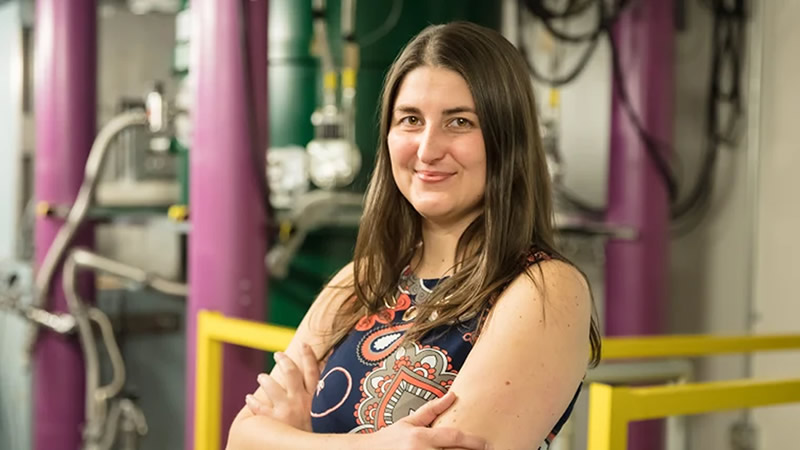June 30, 2019

At Oak Ridge National Laboratory in eastern Tennessee, physicist Leah Broussard is trying to open a portal to a parallel universe.
She calls it an “oscillation” that would lead her to “mirror matter,” but the idea is fundamentally the same. In a series of experiments she plans to run at Oak Ridge this summer, Broussard will send a beam of subatomic particles down a 50-foot tunnel, past a powerful magnet and into an impenetrable wall. If the setup is just right — and if the universe cooperates — some of those particles will transform into mirror-image versions of themselves, allowing them to tunnel right through the wall. And if that happens, Broussard will have uncovered the first evidence of a mirror world right alongside our own.
“It’s pretty wacky,” Broussard says of her mind-bending exploration.
The mirror world, assuming it exists, would have its own laws of mirror-physics and its own mirror-history. You wouldn’t find a mirror version of yourself there (and no evil Spock with a goatee — sorry “Star Trek” fans). But current theory allows that you might find mirror atoms and mirror rocks, maybe even mirror planets and stars. Collectively, they could form an entire shadow world, just as real as our own but almost completely cut off from us.
Broussard says her initial search for the mirror world won’t be especially difficult. “This is a pretty straightforward experiment that we cobbled together with parts we found lying around, using equipment and resources we already had available at Oak Ridge,” she says. But if she unequivocally detects even a single mirror particle, it would prove that the visible universe is only half of what is out there — and that the known laws of physics are only half of a much broader set of rules.
“If you discover something new like that, the game totally changes,” Broussard says.
Read more at NBCNews.com.